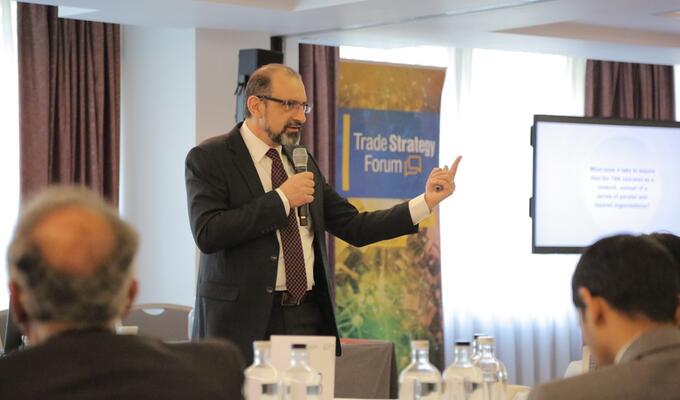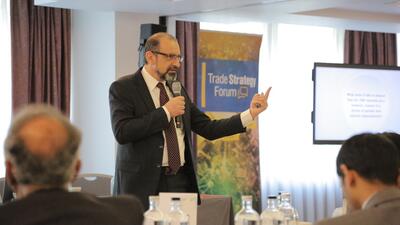


Trade Strategy Forum 2024 – A Trade Support Network That Works
The 2-day forum convened strategy-makers from seventeen (17) countries to define key elements in establishing an effective trade support network.
The second edition of Trade Strategy Forum (TSF) on “First Imperative: A support network that works” was organized by the Research and Strategies for Exports Section of ITC on 14-15 March in Geneva. The focus of this year was on trade and investment support institutions and their coordination. The forum featured nine structured discussions, engaging over 45 practitioners representing governments, private sector, academia from countries across geography. TSF followed a hands-on, pragmatic approach to challenges, and adopted an interactive, debate-style format.
“Institutional complexity is a challenge, but it just a fact of life - it’s not going away. However, complexity shouldn’t mean inefficiency” stated Barbara Ramos, a Chief of Research and strategy for export, ITC. The forum provided a platform for meaningful dialogue and exchange of ideas on pressing issues and opportunities in fostering support networks. Participants delved into topics ranging from determinants of an effective network, coordination and communication to digitalization and innovation.
Despite numerous challenges, institutions strive to bridge divides, build resilience, and launch initiatives that push countries towards international trade competitiveness. They must navigate complex regulatory landscapes, work around infrastructure gaps, and deal with limited resources and access to expertise. “A network without communication is just a collection of islands” added Costin Lianu, President of Association of Export Business Centres/ACEX, Romania.
Throughout the two days, participants explored innovative solutions, shared country-specific stories, and forged new connections. There was a unanimous agreement that national institutional landscapes are diverse, and they require context-specific measures. However, amidst this diversity, participants emphasized on common baseline considerations such as applying a value chain approach in shaping the network, re-focusing institutional competencies towards client-centered service delivery, ensuring leadership and institutionalized coordination, and strengthening the private sector role.
As a result, the discussions and recommendations of the TSF will be distilled into a practical guide for building a trade support network that works.





